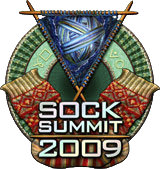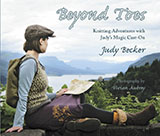First it was Tinky Winky. Then SpongeBob SquarePants. And now U.S. Secretary of Education Margaret Spellings takes a pot-shot at Buster Bunny, the far-traveling host of Postcards From Buster, a WGBH children’s show produced with funding from Ready To Learn and shown on PBS.
Blending animation and live-action on each episode of Postcards From Buster, Buster visits a new location and meets real kids and their families. The children share their experiences and family cultures. Many are bilingual and/or bicultural. Along his journey, Buster has had some 40 total adventures, including meeting a Muslim family in Chicago, a Mexican-American family in San Antonio, extreme mountain-biking here in Oregon, a Hmong festival in Madison, tracking down Moose in Jackson Hole, learning about Shoshone and Northern Arapaho traditions on the Wind River Reservation, spending the day with a large Mormon family in Salt Lake, meeting Orthodox Jews in Manhattan and exploring hip hop in San Fransisco.
The goal of Postcards From Buster is:
To build awareness and appreciation of the many cultures of North America, and to support elementary school-age English Language Learners.
And what has raised Ms. Spelling’s ire? The episode Sugartime, to have been aired this week, in which Buster visits northern Vermont to learn about making maple syrup. Vermont, you see, is one of the few states that recognize same-gender civil unions, and the Vermont kids have two moms.
In a January 25, 2005 Letter to Ms. Pat Mitchell, President and CEO of PBS, Ms. Spellings writes:
The Department of Education has strong and very serious concerns about a specific Ready-To-Learn television episode, yet to be aired, that has been developed under a cooperative agreement between the Department and the Public Broadcasting Service (PBS). The episode — “Sugartime!” — is part of the “Postcards from Buster” series, and would feature throughout the show families headed by gay couples.
As you know, the cooperative agreement that PBS is using to support these programs is designed to prepare preschool and elementary age children for school. A principal focus of the law authorizing funding for the Ready-To-Learn program is facilitating student academic achievement. In the fiscal year 2005 appropriations conference report (H. R. Conf. Rep. No. 108-792 at 1236-1237 (2004)), Congress reiterated the unique mission of Ready-To-Learn, which is “to use the television medium to help prepare preschool age children for school. The television programs that must fulfill this mission are to be specifically designed for this purpose, with the highest attention to production quality and validity of research-based educational objectives, content, and materials.” In addition, you should also know that two years ago the Senate Appropriations Committee raised questions about the accountability of funds appropriated for Ready-To-Learn programs.
We believe the “Sugartime!” episode does not come within these purposes or within the intent of Congress, and would undermine the overall objective of the Ready-To-Learn program — to produce programming that reaches as many children and families as possible.
Say what? Let’s read that last phrase again:
— to produce programming that reaches as many children and families as possible.
Uh… so in order to “reach as many children and families as possible, it’s necessary to cut out an entire portion of the US population as not worthy of being shown? That alone is rather interesting logic. I would also take exception to Ms. Spellings’ editing of the 2005 appropriations conference report. The entire report can be found at fiscal year 2005 appropriations conference report (H. R. Conf. Rep. No. 108-792 (2004)) (very long download without a very fast connection). The pertinent section on pages 1236-1237 is:
Other programs
The conference agreement includes $23,500,000 for the Ready to Learn program instead of $22,864,000 as proposed by the House and $24,000,000 as proposed by the Senate. The conferees continue to strongly support the educational and outreach objectives of the Ready to Learn Television program. The conferees are especially pleased that television programs such as Dragon Tales and Between the Lions developed with funding from Ready to Learn have been recognized with national parent and television production awards. The conferees reiterate the unique mission of Ready to Learn, which is to use the television medium to help prepare pre-school age children for school. The television programs that must fulfill this mission are to be specifically designed for this purpose, with the highest attention to production quality and validity of research-based educational objectives, content, and materials. Therefore, the conferees expect that the grant competition administered for a new award under this program will emphasize the importance of investing Ready to Learn resources in those programs that have proven to fulfill this mission, acquiring new programs with scrutiny, and distinguishing Ready to Learn programs from content easily available on commercial and cable television.
Nothing there about “but don’t show a family with gay parents.” Nothing there questioning the accountability of funds received by Ready To Learn. And, since those funds are managed by the Department of Education’s Office of Innovation and Improvement, perhaps Ms. Spelling should be looking to her own Department’s accountabilities rather than those of WGBH.
Could it be that Ms. Spellings is unaware that Postcards From Buster was featured in the October 12, 2004 issue of The Educational Innovator, a newsletter produced by the OII? Said The Educational Innovator:
[T]he show models language and behavior that young English language learners need for social interaction. Characters in the program imitate new customs and language, hold sustained conversations, share information with each other, and ask questions to learn more about others. Each episode contains key vocabulary and sentence structures that emerge from the storyline. This language learning is reinforced throughout the animation and live-action segments.
. . .
Postcards from Buster builds on the research conducted on other Ready to Learn TV programs that emphasize literacy and learning.
That doesn’t really sound like something that is failing to meet the goals of Congress or the grant program, or even its own educational philosophy. And I don’t see anything there about, “but kids are being harmed by actually learning about different types of families.”
In her letter, Ms. Spellings concludes:
In light of these concerns, we have several requests. First, if you air the show, we must insist that you remove from the specific episode the Department’s seal, as well as any other logo or statement indicating that the Department funded, endorsed, sponsored or was involved in the development, creation, or production of the episode, and, in addition, that you also remove any such reference in any materials about the program. Second, we request that you notify your member stations of the nature of the content of these programs and ask that they review the programs before deciding whether to air them. Third, in the interest of avoiding embroiling the Ready-To-Learn program in a controversy that will only hurt the program, we believe you should strongly consider refunding to the Department the Federal education funds that were used for the episode.
Finally, you can be assured that in the future the Department will be more clear as to its expectations for any future programming that it funds.
Whew. In other words: Take this one off the air NOW, pay us back for it so we can’t be accused of funding it, and if you try something like this again it will be at the risk of all of your funding. Good grief. But, it’s no surprise that PBS has elected to pull the episode.
Kudos to WGBH for not only running the program, but making available to any PBS station that want to also show it. In a statement on their web site, WGBH says:
WGBH regrets the decision of the Public Broadcasting Service (PBS) not to provide public TV stations with the “Sugartime” episode of Postcards from Buster, produced by WGBH’s Children’s Programming department.
WGBH will air the episode locally on Wednesday, Feb. 2 (5:30pm on WGBH 2); Thursday, Feb. 3 (11am on WGBH 44); Monday, Feb. 7 (7:30pm on ‘GBH Kids); Wednesday, March 23 (5:30pm on WGBH 2); Tuesdsay, March 24 (11am on WGBH 44). Additional plays may be added. We also will offer the episode directly to PBS’s 349 stations to allow local broadcasters to decide whether to air the program.
. . .
WGBH believes, as do the series’ advisors, that the program is appropriate for our audience and fits the series’ mission to introduce children to the rich and varied cultures that make up the United States, including kids living in a wide range of family structures.
We consider it the responsibility of public television to give children and parents the resources they need to understand the world they inhabit—without excluding any segment of our society.
. . .
Over the course of the series we feature more than 45 different families, introducing young people from many ethnic backgrounds, including Mormons in Utah, Hmong in Wisconsin, Orthodox Jews, and a Pentacostal Christian family. The series explores the role of religion in their lives. We visit kids living in a variety of settings in cities, suburbs, and the country.
Of the 40 Postcards episodes, this is the only one that visits with kids in this kind of family structure (the majority of episodes are with two–parent, male/female households; we also visit kids who live in single–parent households and extended family households). We included the Vermont family because significant numbers of children in the United States live in a similar family structure.
WGBH stands behind this production.
You GO WGBH! Don’t let the neocon right foist their narrow-minded, biggoted censorship on the rest of the US in an attempt to pretend that all is white-bread and conservative Christian.
And what can the rest of us do?
Write to WGHB and Ready To Learn to express your support of the Sugartime episode of Postcards From Buster.
Write to PBS Kids and OBP and let them know that your continued support depends on their willingness to ignore such blatant attempts at censorship.
Write to the staff and directors of OII. Let them know that you support the mission of programs like Ready To Learn and you do not believe that mission should be censored.
And write to Margaret Spellings and tell her, in the nicest, most professional way, to get a life.























